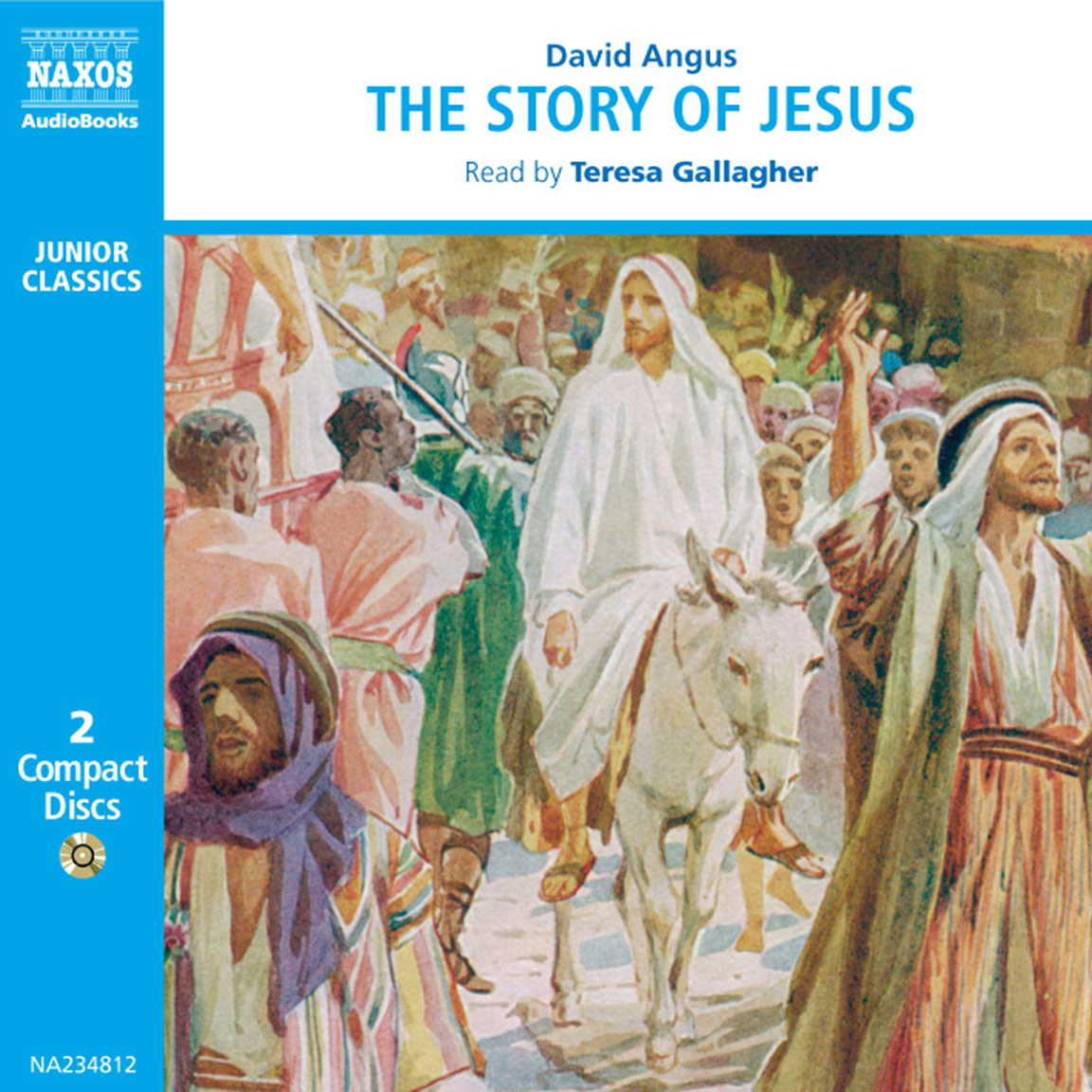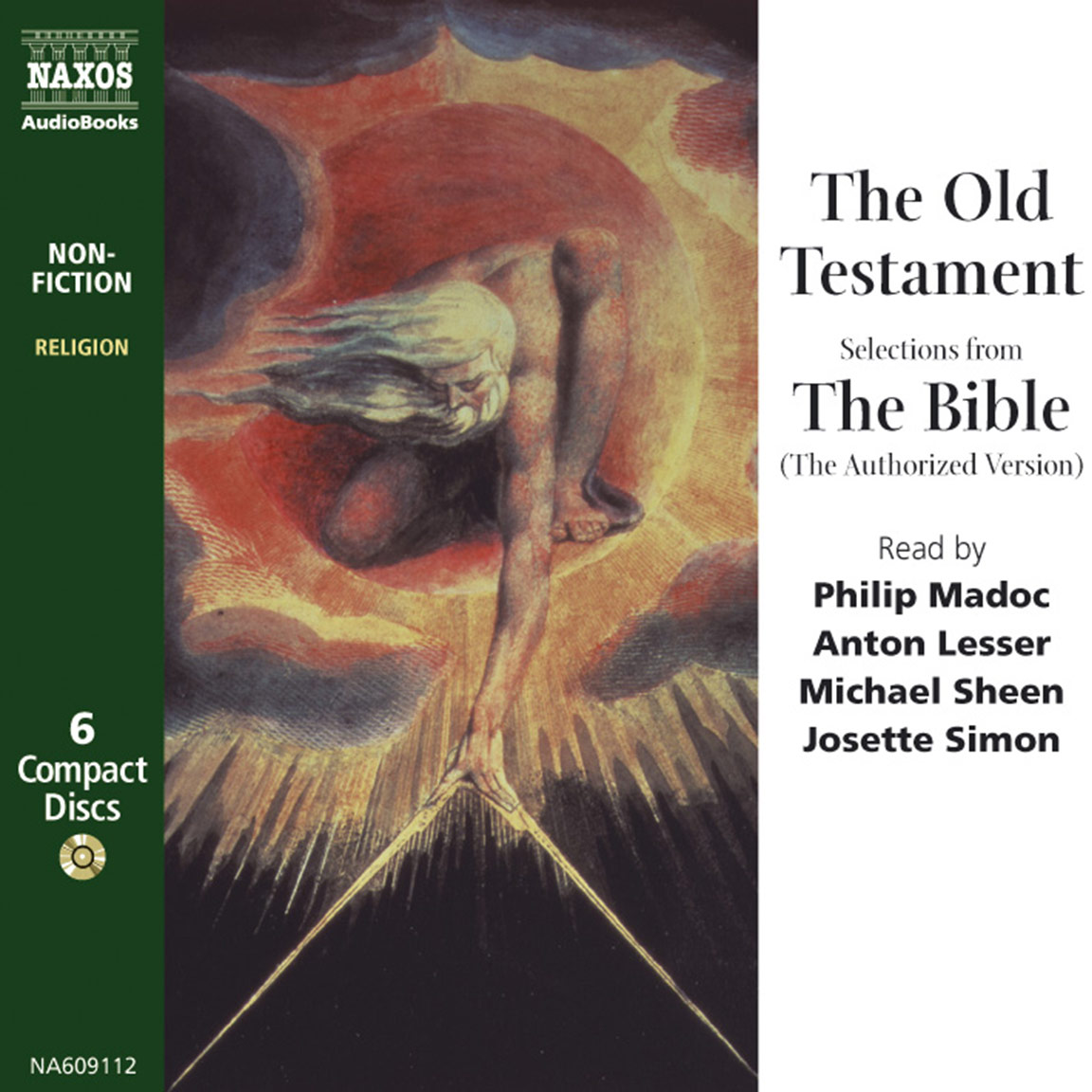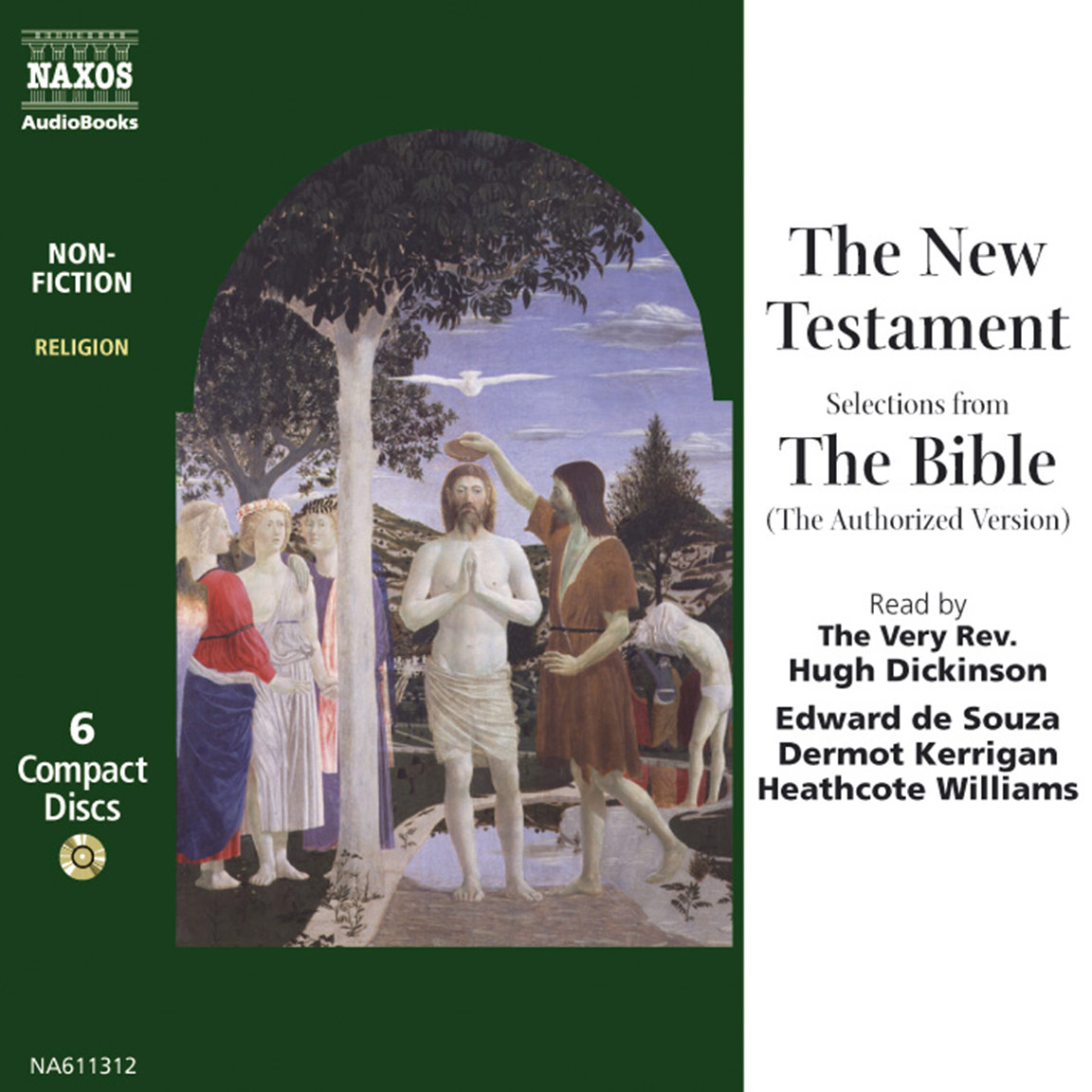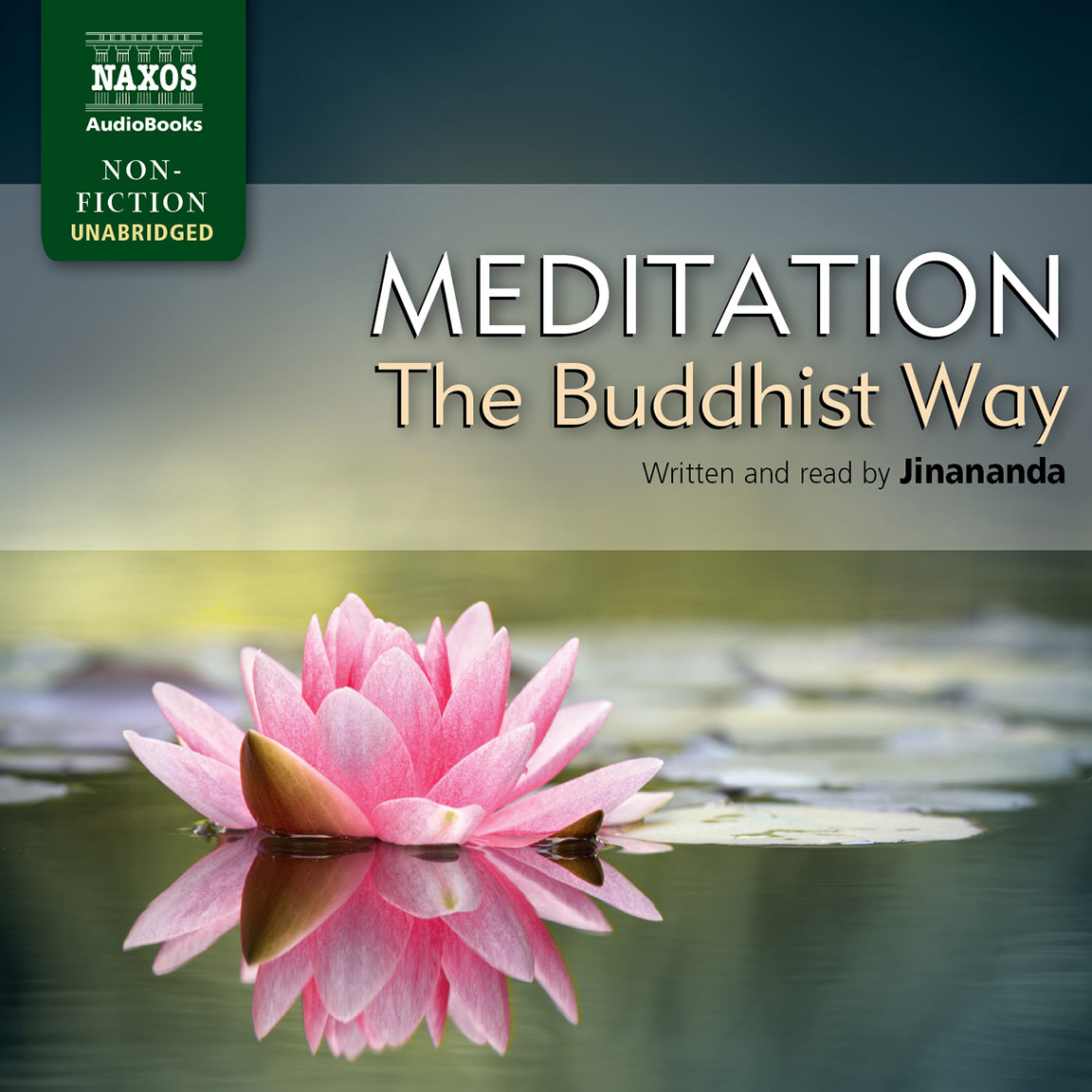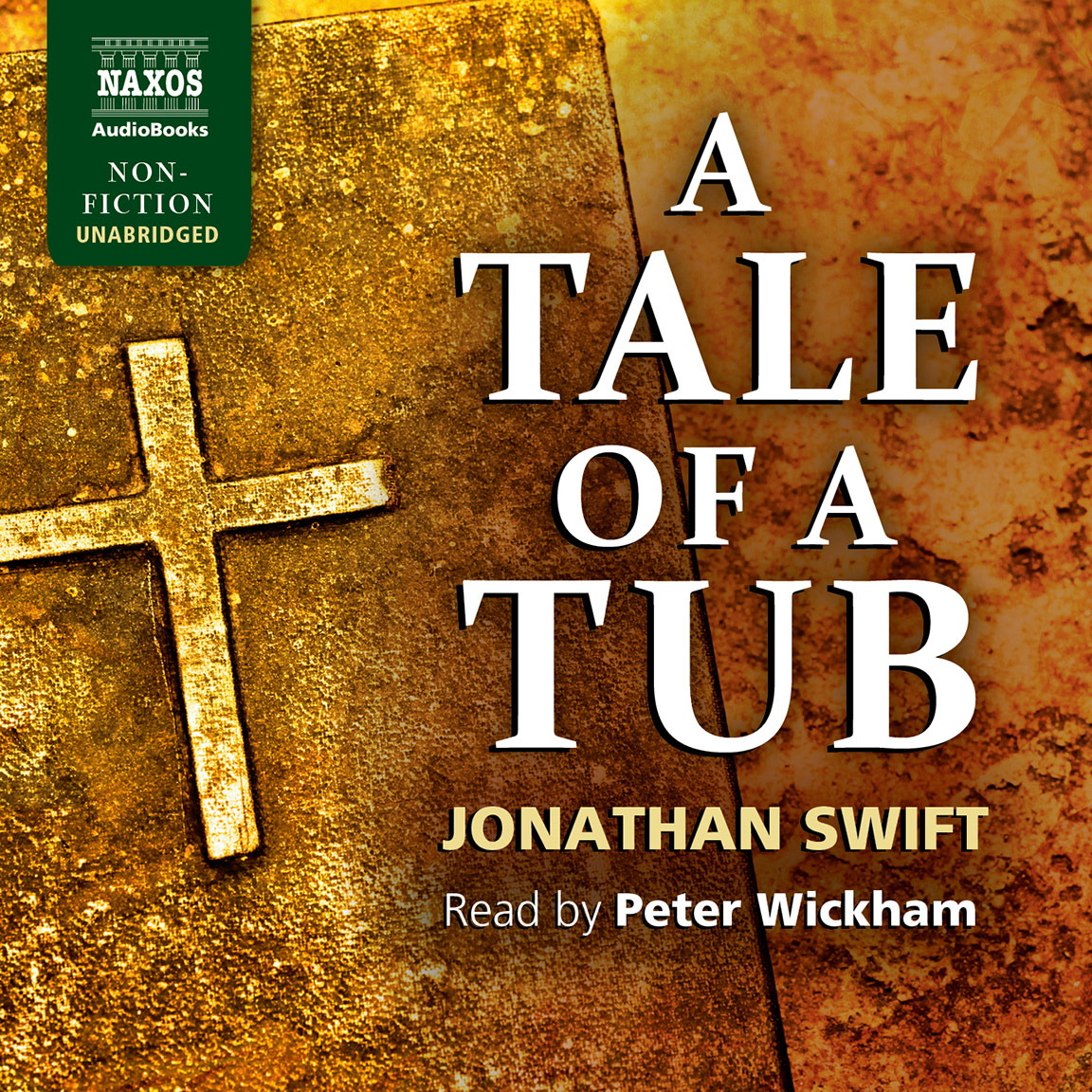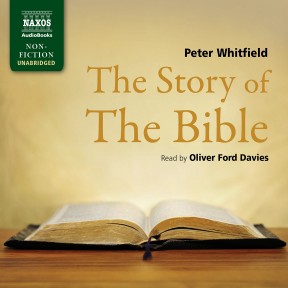
Audio Sample
Peter Whitfield
The Story of the Bible
Read by Oliver Ford Davies
unabridged
History or myth? The word of God or the words of men? What is the Bible? This history, especially written for this recording, describes clearly and concisely how the Bible came into being, what it contains and its appearance in the ancient languages of Aramaic, Hebrew, Greek and Latin. After 400 years, the King James Version remains a religious text and a literary epic, though many other translations before and since – William Tyndale, the Good News Bible – have influenced generations. This fascinating, accessible introduction places the Bible in its religious and cultural context, showing why men lived and died in its shadow.
-
Running Time: 2 h 39 m
More product details
Digital ISBN: 978-1-84379-478-3 Cat. no.: NA0040 Download size: 38 MB BISAC: REL006000 Released: February 2011 -
Listen to this title at Audible.com↗Listen to this title at the Naxos Spoken Word Library↗
Due to copyright, this title is not currently available in your region.
You May Also Enjoy
Reviews
The Bible: history or myth? And what is its central message? In this audio original, historian Whitfield (Darwin—in a Nutshell) attempts to address these questions and many more, drawing on the Old and the New Testament through to the apocalyptic Book of Revelation. That’s quite an undertaking, especially given the confines of less than three hours, but Whitfield makes an impressively good start at addressing these issues, additionally tracing the Bible’s influence on world literature, culture, and thought. While the gripping images, symbols, and stories depicted in the various iterations of the Bible are ever shifting, he argues, they always return to the same central message: the complex and tumultuous relationship between humankind and God. He develops this theory in an intelligent and compelling way, making it palatable to lay audiences. British actor/narrator Oliver Ford Davies (Star Wars: The Phantom Menace) does a magnificent job of using inflection to convey feeling as appropriate. Recommended for all listeners.
Scott R. DiMarco, Library Journal
Booklet Notes
A book of ancient religious texts, almost invariably black and printed in minute type; interminable in its length and often incomprehensible in its language; embodying the beliefs of the past, and containing moral laws forbidding many forms of human activity; associated with authority, with puritanism, with unreason; a survival from the dark eras of human history when men fought bloody wars for their beliefs, and persecuted each other in the name of the god whom they claimed to find in this very book.
This may be a caricature, yet it undoubtedly reflects the instinctive feeling evoked in many people when they hear the word ‘Bible’: it is, they feel, irrelevant to modern life, something that may be allowed to recede into history. But the depth of misunderstanding that this view represents is almost tragic, for the truth is that the Bible embodies a vision – one of the greatest visions ever conceived by man. This vision is nothing less than the dimension of the divine confronting mankind in his earthly life. Throughout the various books which make up the Bible, the earth and all that is in it are seen as a creation: they exist through the will of a majestic external power. Man is a central part of this creation, but he is not in command of it, or of his own spirit. Instead he stands in a moral relationship to something far more powerful than himself: to God. Only by understanding and accepting this moral order can mankind be truly at peace with himself.
For many centuries
the Bible, although
seen as the word of
God, was accessible
only to the
intellectual elite
This is the central message of the Bible, and stating it in these simplistic terms shows clearly why it is no longer a popular message: modern man sees himself as free, self-sufficient and in control of his own destiny. Through his own intellectual power, he is constantly re-creating his world and himself. All the triumphs of human history have sprung from this claim to freedom; but so have all its tragedies. Why is human life and history this characteristic fusion of creativity and destructivity? Why is the world full of unhappiness, suffering, pain, striving and injustice? The Bible opens with a myth which answers these questions. It is because man has turned his back on his maker, was expelled from paradise, and now lives in a broken relationship with his maker. Only through rediscovering a life of sanctity, wisdom and obedience can this relationship be restored.
The long, often confusing narratives of the Old Testament tell of the vicissitudes of that relationship, of God’s attempts to reach out to man, and man’s to God. The Old Testament is fulfilled in the New, where this troubled relationship is healed through the man who was also in some sense God, and who offered a radically new pattern for human life. The crucial point about the Bible is that all this happens in time, in history; indeed the faith of the Bible is that the entire pattern of history has a purpose; that of reconciling man with God. The end of the New Testament, the Book of Revelation, is a vision of the end of time, and the renewal of the creation. Thus the conviction that dominated the Bible is that God reveals himself, he acts, in history and in human life.
But of course this message is often expressed in time-bound language and symbols, for the Bible sprang from an ancient culture remote from ours in time and place. We have, to a large extent, to unravel, elucidate or demythologise this language in order to understand its essential message. When we do this, we see that the Bible is indeed the long record of the human encounter with the divine. The Bible is not – as was once widely supposed – the word of God himself: it was written by men, but by men who were profoundly convinced that the world was God’s, and that God acted in history and in their own lives. This was the faith first of the Jewish, then of the Christian writers of the Bible, and through them it spread outwards to become the faith of all Western Christendom. For us today, such a religious vision of history has become terribly difficult because we have in a sense become our own gods, with an absolute conviction that we hold power to control our own individual and collective destinies. This is the heart of the conflict between the ancient religious interpretation of life, and the modern secular view.
For many centuries the Bible, although seen as the word of God, was accessible only to the intellectual elite: the scholars and priests of the Church who could read Greek and Latin. In this situation, the authority of the Church was elevated until it was equal or superior to that of the Bible. In the 16th century, powerful new forces combined to produce a rediscovery of the Bible. The leaders of the Reformation affirmed the right of all men to read the Bible in their own language, and have access to God in their own inner conscience. This movement was dramatically advanced by the advent of printing, and the result was a religious revolution which split medieval Christendom.
Many of these post-Reformation translations into the vernacular tongues helped to fix the modern languages of the European nations, and nowhere more so than in England. Four hundred years ago, there was published a translation of the Bible commissioned by King James I, which became one of the great pillars of English literature. Commonly referred to as ‘The Authorised Version’, it was produced by a committee of some 50 scholars and churchmen over a period of five years. It was closely based in part on the earlier incomplete translation by William Tyndale, but the King James Version achieved a new majesty of expression which has never been surpassed. Now archaic and superseded by newer translations, the feeling persists among English readers that this remains the Bible, that its words have been sanctified by centuries of public worship and private devotion. Its blend of poetic beauty and powerful directness of speech have fixed forever many of its passages as among the glories of the English language. Perhaps we no longer want to hear them today, but those majestic words are still there for us; as Christ proclaimed to his disciples, ‘Heaven and earth shall pass away, but my words shall not pass away’.
Notes by Peter Whitfield
